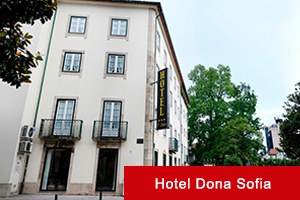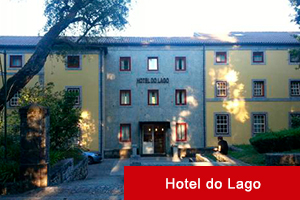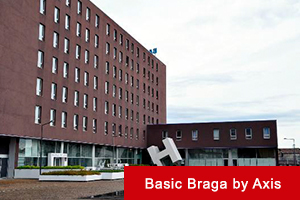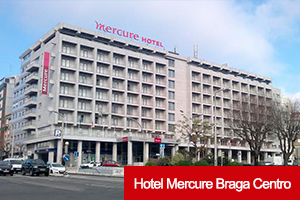15 TO 18 JULY 2024
UNIVERSITY OF MINHO | BRAGA – PORTUGAL



Jeffrey M. Wooldridge is University Distinguished Professor of Economics and Walter Adams Distinguished Faculty Fellow in Economics at Michigan State University, where he has taught since 1991. He previously taught at MIT. He received his bachelor of arts, with majors in computer science and economics, from the University of California, Berkeley, and his doctorate in economics from the University of California, San Diego. Dr. Wooldridge is a fellow of the Econometric Society and of the Journal of Econometrics, and is a founding fellow of the International Association for Applied Econometrics. His other awards include the Distinguished Author award from the Journal of Applied Econometrics, the Plura Scripset award from Econometric Theory, and the Sir Richard Stone prize from the Journal of Applied Econometrics. He has also served on several editorial boards, including as editor of the Journal of Business and Economic Statistics. Dr. Wooldridge has written chapters for the Handbook of Econometrics and the Handbook of Applied Econometrics. He is the author of of the textbooks Introductory Econometrics: A Modern Approach (South-Western, 7e, 2019) and Econometric Analysis of Cross Section and Panel Data (MIT Press, 2e, 2010).

Course outline
We will cover difference-in-differences and event study methods for policy analysis, with an emphasis on panel data. However, I will also discuss how flexible regression methods apply to repeated cross sections. We will begin with flexible regression-based methods, including two-way fixed effects estimation of a flexible equation allowing for staggered interventions and heterogeneous treatment effects. Imputation methods and doubly robust methods based on rolling estimation (including long differencing) also will be covered.
I will make connections between standard difference-in-differences estimators and event-study estimators, including how to make event-study methods more flexibly by controlling for covariates in order to relax the parallel trends assumption. We will discuss how to test for pre-trends and how to adjust for heterogeneous trends.
Other topics include modifications required if there is no never treated group, how to allow for exit from treatment, how to handle unbalanced panels, and issues that arise with time-varying control variables. We will also learn how one can obtain inference in situations with a small number of cross-sectional units, as well as provide an overview of synthetic control methods.
We will briefly cover extension of regression-based methods to non-binary treatments. I will show how linear regression methods extend to nonlinear difference-in-differences methods for binary, fractional, and nonnegative (including count and corner solution) outcomes. The final topic shows how methods for panel data can be modified for repeated cross sections.
Laboratory/practical sessions will be taught using Stata, and participants are expected to bring their laptops.
Temporary licenses will be freely provided to participants during the summer school.
DAY 1
Session 1: 9:15-10:30
Introduction and Overview; Two-Period Panel Data Case; No Anticipation and Parallel Trends; Regression Adjustment and Propensity Score Methods
Coffee Break: 10:30-10:45
Session 2: 10:45-12:00
General Common Intervention Timing; Pooled OLS and Extended Controlling for Covariates via Regression Adjustment; Event Study Estimation
Lunch Break: 12:00-13:30
Session 3: 13:30-14:45
Staggered Interventions, I; Heterogeneous Effects; Imputation; Pooled OLS and Extended TWFE; All Units Eventually Treated
Coffee Break: 14:45-15:00
Practical Session: 15:00-16:30
DAY 2
Session 4: 9:15-10:30
Staggered Interventions, II. Strategies with Exit. Event Study Methods. Testing and Correcting for Violation of Parallel Trends.
Coffee Break: 10:30-10:45
Session 5: 10:45-12:00
Staggered Interventions, III; Alternative Imputation Estimators; Rolling Methods and Long Differencing; Propensity Score Methods.
Lunch Break: 12:00-13:30
Session 6: 13:30-14:45
Small Number of Cross-Sectional Units; Synthetic Control Methods
Coffee Break: 14:45-15:00
Practical Session: 15:00-16:30
DAY 3
Session 7: 9:15-10:30
Non-Binary Treatments; Time-Varying Covariates; Unbalanced Panels; Standard Errors
Coffee Break: 10:30-10:45
Session 8: 10:45-12:00
Nonlinear DiD. Binary, Fractional, and Nonnegative Reponses; Quasi-MLE Estimation
Lunch Break: 12:00-13:30
Session 9: 13:30-14:45
Difference-in-Differences with Repeated Cross Sections
DAY 4
Research Seminar: “Estimating Distributional Treatment Effects with Staggered Interventions for Panel Data”
A graduate degree (MSc or PhD) in Economics, Management, Finance, Mathematics, Statistics, or closely related fields. We also welcome applications from qualified MSc students in these fields.
Please note that ECTS credits are not issued for this summer school.
We will reply to your message with instructions on how to proceed with the payment of the registration fee.
NIPE/EEG informs that photographs and/or video will be taken at this event for academic activity reporting purposes.
Personal data treatment and privacy policy
Registration in the summer school by qualified applicants is accepted on a rolling basis, meaning that the registration will close once it reaches the maximum intake of 40 participants.
| Registration: 650€ | |
| Students* (PhD, Master) registration: 500€ |
* Students need to provide a letter from their advisor confirming their student status;
The application deadline is July 8th, 2024;
A cancellation fee of 100 EUR is charged for cancellations until July 10th, 2024. No reimbursements will be made for cancellations after this date.
Fees cover attendance, lunches and two refreshments from Monday to Wednesday (July 15–17), and a bus pass (provided upon registration) which allows you to use Braga’s public transport (TUB) at no cost during the summer school.

Luís Sá
E-mail: luis.sa@eeg.uminho.pt

Nelson Areal
E-mail: nareal@eeg.uminho.pt

Susana Figueiredo
E-mail: nipe.summerschool@eeg.uminho.pt
Phone: +351 253 604 518
The summer school will take place at the School of Economics and Management, University of Minho, Braga, Portugal. EEG-UMinho was founded on 10 March 1982. It is an organic unit of education, research and interaction with society.
It focus on activities ranging from the sciences of economics to business administration and political science and international relations, and other related areas. It offers 8 Bachelor Programmes, 14 Master Programmes and 5 PhD Programmes, accounting for approximately 2500 students. The School is widely recognised for the quality of its research: it integrates 2 Research Units, one of which achieved a maximum rating of “Excellent” by the Portuguese Foundation for Science and Technology (FCT).
The closest airport to Braga is Francisco Sá Carneiro Airport, in Porto, which stands some 45 Km away from Braga. For GPS users, the coordinates to UMinho are (according to Google Earth): 41°33’41.00″N and 8°23’54.45″W.
The easiest way to get to Braga is by using the “get Bus”, which does daily transfers from the Francisco Sá Carneiro Airport to Braga.
Note that as an alternative, you can take the subway, Line Violeta to Campanhã Station [about 33 minutes, between 6am and 1:30am]. From there you should get the train to Braga. Information on train prices and timetables can be found in the CP website. Braga train station is 5 minutes walking distance from the city centre.
From Porto airport to Braga participants can also:
These are the hotels with which we negotiated special prices for Summer School participants.

| ***** | |
|---|---|
| SINGLE | 98€ |
| DOUBLE | 113€ |
| LOCATION | Near University (5 min walking distance) |
| NOTES | |
| Reservations: res.melia.braga@meliaportugal.com
Tourist tax 1.50€, per day. 15€ Summer supplement 15€/night. |
|

| **** | |
|---|---|
| SINGLE | 89€ |
| DOUBLE | 99€ |
| LOCATION | City centre |
| NOTES: | |
| Including breakfast. | |

| *** | |
|---|---|
| SINGLE | 50€ |
| DOUBLE | 65€ |
| LOCATION | City centre |
| NOTES: | |
| Tourist tax 1.50€, per day.
Reservations: info@hoteldonasofia.com |
|

| **** | |
|---|---|
| Hotel do Elevador; Hotel do Parque | |
| SINGLE | 72€; 82€ |
| DOUBLE | 88€; 98€ |
| LOCATION | Bom Jesus Mountain (10 min by car) |
| NOTES | |
| Reservations: | |

| *** | |
|---|---|
| Hotel do Lago and Hotel João Paulo II | |
| SINGLE | 52€ |
| DOUBLE | 62€ |
| LOCATION | Bom Jesus Mountain (10 min by car) |
| NOTES | |
| Tourist tax 1.50€, per day. | |

| *** | |
|---|---|
| SINGLE | – |
| DOUBLE | – |
| LOCATION | 10% discount on the prices marked on their website.Near University (10 min walking distance). |
| NOTES | |

| *** | |
|---|---|
| SINGLE | |
| DOUBLE | |
| LOCATION | Braga train station (buses running to and from the university of Minho every 15 minutes). |
| NOTES | |
| Reservations: www.axishoteis.com
|
|

| SINGLE | |
|---|---|
| DOUBLE | |
| LOCATION | City centre |
| NOTES | |

| SINGLE | €- |
|---|---|
| DOUBLE | €- |
| LOCATION | 10% discount on the prices marked on their website.. City centre |
| NOTES | |

Princeton University.

Princeton University

Syracuse University

University of Illinois

Universidade de Princeton, EUA

Universidade da Pensilvânia, EUA

New York University, EUA

Universidade de Nova Iorque, EUA

Universitu of Surrey
London Metropolitan University and University of Surrey

Cornell University

University of California – Davis

MTI

University of California, San Diego, EUA

University of Minnesota and Federal Reserve Bank of Minneapolis, USA

Michigan State University, USA

Institute for Fiscal Studies, London

Birkbeck College – London